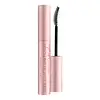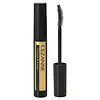What's inside
What's inside
 Key Ingredients
Key Ingredients

 Benefits
Benefits

 Concerns
Concerns

 Ingredients Side-by-side
Ingredients Side-by-side

Isododecane
EmollientTrimethylsiloxysilicate
EmollientMethyl Trimethicone
Skin ConditioningPolyethylene
AbrasiveParaffin
PerfumingSodium Polyacrylate Starch
AbsorbentDipropylene Glycol
HumectantPolysorbate 80
EmulsifyingDextrin Palmitate
EmulsifyingMicrocrystalline Wax
Emulsion StabilisingIsostearic Acid
CleansingSilica
AbrasiveCopernicia Cerifera Wax
Petrolatum
EmollientTriethoxycaprylylsilane
Tocopherol
AntioxidantPhenoxyethanol
PreservativeCI 77499
Cosmetic ColorantIsododecane, Trimethylsiloxysilicate, Methyl Trimethicone, Polyethylene, Paraffin, Sodium Polyacrylate Starch, Dipropylene Glycol, Polysorbate 80, Dextrin Palmitate, Microcrystalline Wax, Isostearic Acid, Silica, Copernicia Cerifera Wax, Petrolatum, Triethoxycaprylylsilane, Tocopherol, Phenoxyethanol, CI 77499
Isododecane
EmollientTrimethylsiloxysilicate
EmollientPolyethylene
AbrasiveMicrocrystalline Wax
Emulsion StabilisingDextrin Palmitate
EmulsifyingPolyglyceryl-2 Triisostearate
EmulsifyingAcrylates/Dimethicone Copolymer
Skin ConditioningDextrin
AbsorbentDisteardimonium Hectorite
StabilisingPentylene Glycol
Skin ConditioningPEG-15 Glyceryl Stearate
EmulsifyingSilica
AbrasivePhenoxyethanol
PreservativeNylon-6
Tocopherol
AntioxidantPanthenyl Ethyl Ether
Simmondsia Chinensis Seed Oil
EmollientIsostearic Acid
CleansingIsostearoyl Hydrolyzed Silk
Skin ConditioningCI 77492
Cosmetic ColorantCI 77266
Cosmetic ColorantIsododecane, Trimethylsiloxysilicate, Polyethylene, Microcrystalline Wax, Dextrin Palmitate, Polyglyceryl-2 Triisostearate, Acrylates/Dimethicone Copolymer, Dextrin, Disteardimonium Hectorite, Pentylene Glycol, PEG-15 Glyceryl Stearate, Silica, Phenoxyethanol, Nylon-6, Tocopherol, Panthenyl Ethyl Ether, Simmondsia Chinensis Seed Oil, Isostearic Acid, Isostearoyl Hydrolyzed Silk, CI 77492, CI 77266
Ingredients Explained
These ingredients are found in both products.
Ingredients higher up in an ingredient list are typically present in a larger amount.
Dextrin Palmitate comes from the palmitic acid ester of Dextrin. It is used as an emulsifier and texture enhancer.
Emulsifiers help keep ingredients together. According to a manufacturer, dextrin palmitate helps create a low-viscosity gel texture.
Due to its fatty acid base, this ingredient is not fungal-acne safe.
Learn more about Dextrin PalmitateIsododecane is a fragrance, emollient, and solvent.
As an emollient, it helps your skin stay soft and hydrated. Emollients help trap moisture into your skin.
Isododecane's role as a solvent makes it a great texture enhancer. It spreads smoothly on skin and does not leave a sticky feeling behind. Isododecane also helps prevent color transfer in makeup products.
Isododecane is not absorbed into skin.
Learn more about IsododecaneIsostearic acid is a saturated fatty acid. Its structure makes it a great surfactant.
Surfactants help decrease the surface tension between two liquids. This property also makes it an effective emulsifier. Emulsifiers help prevent waters and oils from separating in a product.
Isostearic Acid is created from oleic acid.
This ingredient may not be Malassezia folliculitis, or fungal-acne safe.
Learn more about Isostearic AcidMicrocrystalline Wax is created by de-oiling petroleum. It is highly refined and purified before being added to cosmetics.
Microcrystalline Wax is used to enhance the texture and create even consistency. It helps stabilize a product by preventing ingredients from separating.
Phenoxyethanol is a preservative that has germicide, antimicrobial, and aromatic properties. Studies show that phenoxyethanol can prevent microbial growth. By itself, it has a scent that is similar to that of a rose.
It's often used in formulations along with Caprylyl Glycol to preserve the shelf life of products.
Polyethylene is a synthetic ingredient that helps the skin retain moisture. It is a polymer.
It is also typically used within product formulations to help bind solid ingredients together and thicken oil-based ingredients. When added to balms and emulsions, it helps increase the melting point temperature.
Silica, also known as silicon dioxide, is a naturally occurring mineral. It is used as a fine, spherical, and porous powder in cosmetics.
Though it has exfoliant properties, the function of silica varies depending on the product.
The unique structure of silica enhances the spreadability and adds smoothness, making it a great texture enhancer.
It is also used as an active carrier, emulsifier, and mattifier due to its ability to absorb excess oil.
In some products, tiny microneedles called spicules are made from silica or hydrolyzed sponge. When you rub them in, they lightly polish away dead skin layers and enhance the penetration of active ingredients.
Learn more about SilicaTocopherol (also known as Vitamin E) is a common antioxidant used to help protect the skin from free-radicals and strengthen the skin barrier. It's also fat soluble - this means our skin is great at absorbing it.
Vitamin E also helps keep your natural skin lipids healthy. Your lipid skin barrier naturally consists of lipids, ceramides, and fatty acids. Vitamin E offers extra protection for your skin’s lipid barrier, keeping your skin healthy and nourished.
Another benefit is a bit of UV protection. Vitamin E helps reduce the damage caused by UVB rays. (It should not replace your sunscreen). Combining it with Vitamin C can decrease sunburned cells and hyperpigmentation after UV exposure.
You might have noticed Vitamin E + C often paired together. This is because it is great at stabilizing Vitamin C. Using the two together helps increase the effectiveness of both ingredients.
There are often claims that Vitamin E can reduce/prevent scarring, but these claims haven't been confirmed by scientific research.
Learn more about TocopherolThis silicone is an emollient. Emollients create a thin film on the skin to prevent moisture from escaping.
It is not soluble in water and helps increase water-resistance in products.
According to a manufacturer, it can blend seamlessly with silicone oils, such as Cyclopentasiloxane.
Learn more about Trimethylsiloxysilicate